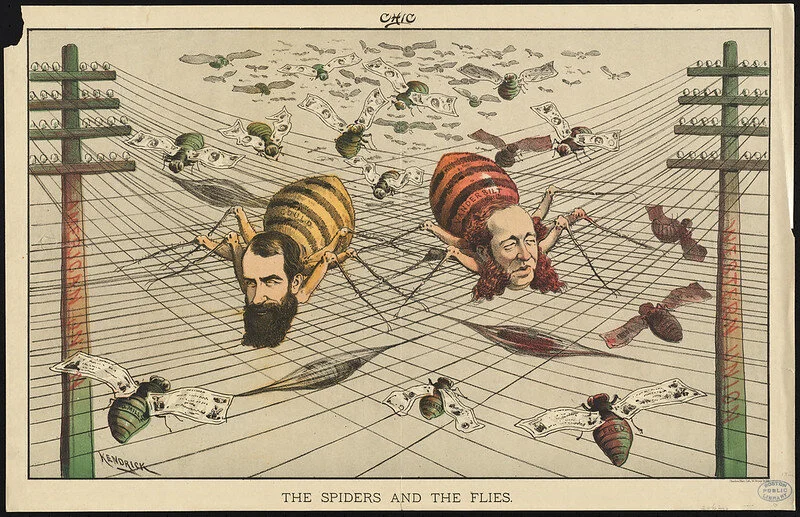Legal director Sandeep Vaheesan describes how Supreme Court Justice Stephen Breyer has played a key role in the rise of monopoly and oligopoly across the economy.
Read MoreChief economist Brian Callaci illustrates how Amazon’s new “franchising model” for trucking companies is really a way for the corporation to pay lower wages and outsource risk.
Read MoreSenior Legal Analyst Daniel Hanley demonstrates why Congress should incorporate federal corporate chartering into their antimonopoly agenda to democratize the economy and to ensure corporations operate in the public interest.
Read MoreFinancial policy director Alexis Goldstein writes about how the decentralized nature of cryptocurrencies does not correlate with the inability to comply with tax laws.
Read MorePolicy director Phil Longman argues that President Biden’s big bet on rail infrastructure will be wasted unless he takes on the financiers who control the industry.
Read MoreSenior legal analyst Daniel Hanley explains why the FCC should block Verizon’s attempt to merge with a critical competitor and market participant.
Read MoreSenior legal analyst Daniel Hanley writes in Common Dreams about Amazon’s latest ploy to release an Alexa-enabled tracking device for children—and the corporations larger crusade to monopolize markets and surveil consumer and third-party merchants.
Read MorePolicy analyst Daniel Hanley demonstrates how federal antitrust enforcers could use compulsory licensing to help bolster and speed up other anti-monopoly efforts, especially when it comes to tech giant Google.
Read MoreGarphil Julien highlights how the killing of President Jovenal Moïse took place against a backdrop of elite power, anti-competitive policies, and the U.S. failing to create open markets.
Read MorePolicy analyst Daniel Hanley details ways U.S. law can be leveraged to ban exclusive dealing by dominant firms.
Read MoreSandeep Vaheesan publishes a piece about how the NCAA case set back antitrust law.
Read MoreFinancial Policy Director Alexis Goldstein writes about how today’s tax code incentivizes the nation’s billionaires to plow as much of their money as possible into investments in these family funds, further amplifying their wealth and giving them larger influence over the political process.
Read MoreDaniel Hanley of Open Markets Institute writes in Competition Policy International about how self-preferencing can violate Section 2 of the Sherman Act.
Read MoreSandeep Vanheesan, legal director, and Claire Kelloway, senior reporter, write in the LPE Project about the insufficient portrayals of antimonopoly policy in the field of agriculture. Their article shines a light on the misrepresented economic statuses of farmers across the states.
Read MoreLegal Director Sandeep Vaheesan writes about how the FTC can prohibit the harmful surveillance advertising business model used by Facebook, Google, and other platforms as an unfair method of competition, and force the corporations to develop benign methods of making money.
Read MoreWashington Monthly runs Claire Kelloway’s piece from Food & Power about how tech giants are trying to create a monopoly middleman on grocery deliveries.
Read MoreBrian Callaci of Open Markets Institute writes in Forge Organizing about how trade unionism and the movement to stop monopolies are complements, not substitutes.
Read MoreIn a piece in Washington Monthly, Phil Longman of Open Markets Institute highlights how monopoly power in health care compromises public health and threatens democracy in reviewing Brian Alexander’s new book, “The Hospital”.
Read More

















